Modern Languages
Enabling our pupils to use foreign languages effectively to prepare them for the world of work in a global era has countless benefits, not least because global does not necessarily mean that everyone will speak English. Learning a foreign language provides the ability to understand and engage with people in an international context enabling them to be better communicators in our global world. This life skill also gives them a competitive edge in any career field.
The Modern Foreign Languages department prides itself on having a team of dedicated and passionate teachers, supported by native language assistants who contribute to the achievement of excellent levels of oral competence.
The curriculum is set up for pupils to take responsibility for their own linguistic journey from the First Form (Years 7). Pupils can opt to take two modern foreign languages from a choice of three. French, German and/or Spanish can then be studied at GCSE level up to A Level. There are also opportunities for pupils to learn Arabic, Italian or Japanese from scratch as part of our vibrant extra-curricular programme or as part of the Duke of Edinburgh Award Scheme's skills element. French, German or Spanish with Business can also be taken as part of the Sixth Form Electives programme.
Conversational classes are provided in groups in Year 10 and on an individual basis at GCSE and in the Sixth Form. Provision can also be made for native speakers to attend the Native programme if this is one of the mainstream languages offered in the curriculum.
Outside the classroom those studying GCSE are encouraged to attend our termly MFL Bungee lectures designed to stretch and challenge linguistically as well as learn about the cultural richness and diversity of each country. Sixth Form linguists attend “Café Lingua” which provides stimulating outside lectures, theatre trips, debates against other schools and various workshops.
Pupils are actively encouraged to participate in external language competitions such as the Business Language Champions, The Stephen Spender Prize, The University of French Institute Paris Prize and Oxford Flash Fiction Competition. They can also partake in an extensive list of cultural and linguistic trips abroad. The department organises several trips every year to France, Germany and Spain to encapsulate a passion for languages by attending Language Schools and staying with host families in order to be fully immersed in the culture of the country.
Modern languages combine well with any other subject at university. Mixed degrees with a language and Business Studies or Law, for instance, are popular and many universities offer a language with Science or Engineering degree courses. Specialist linguists can seek employment in a wide range of areas where no specific degree is required but where their linguistic skills will be a useful extra, particularly in commerce and industry.
| Subject Documents |
|---|
| GCSE Handbook |
| Sixth Form Handbook |

















